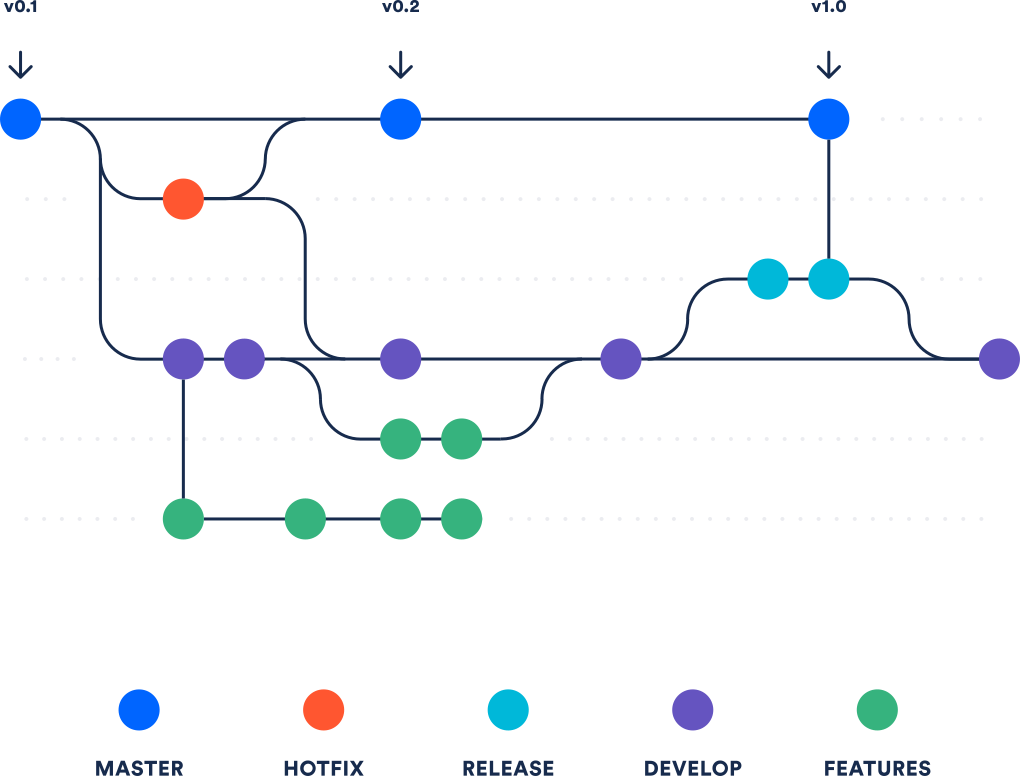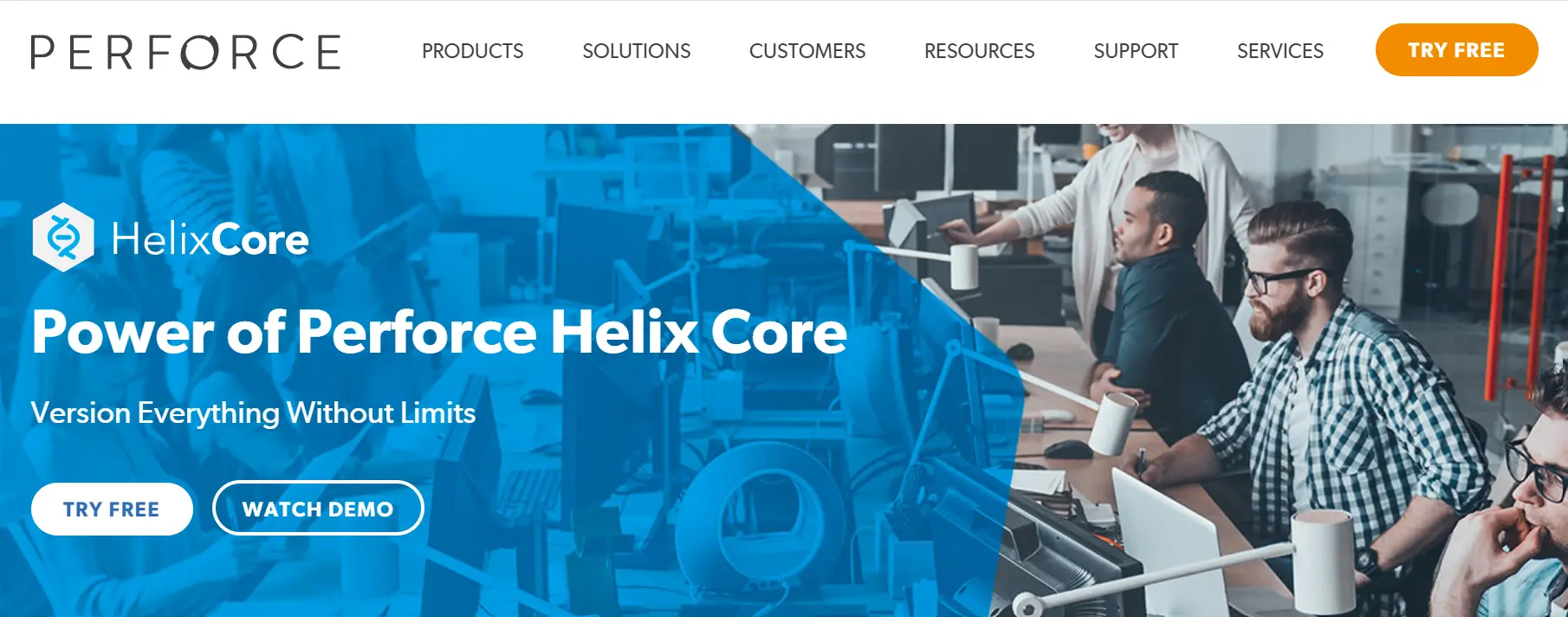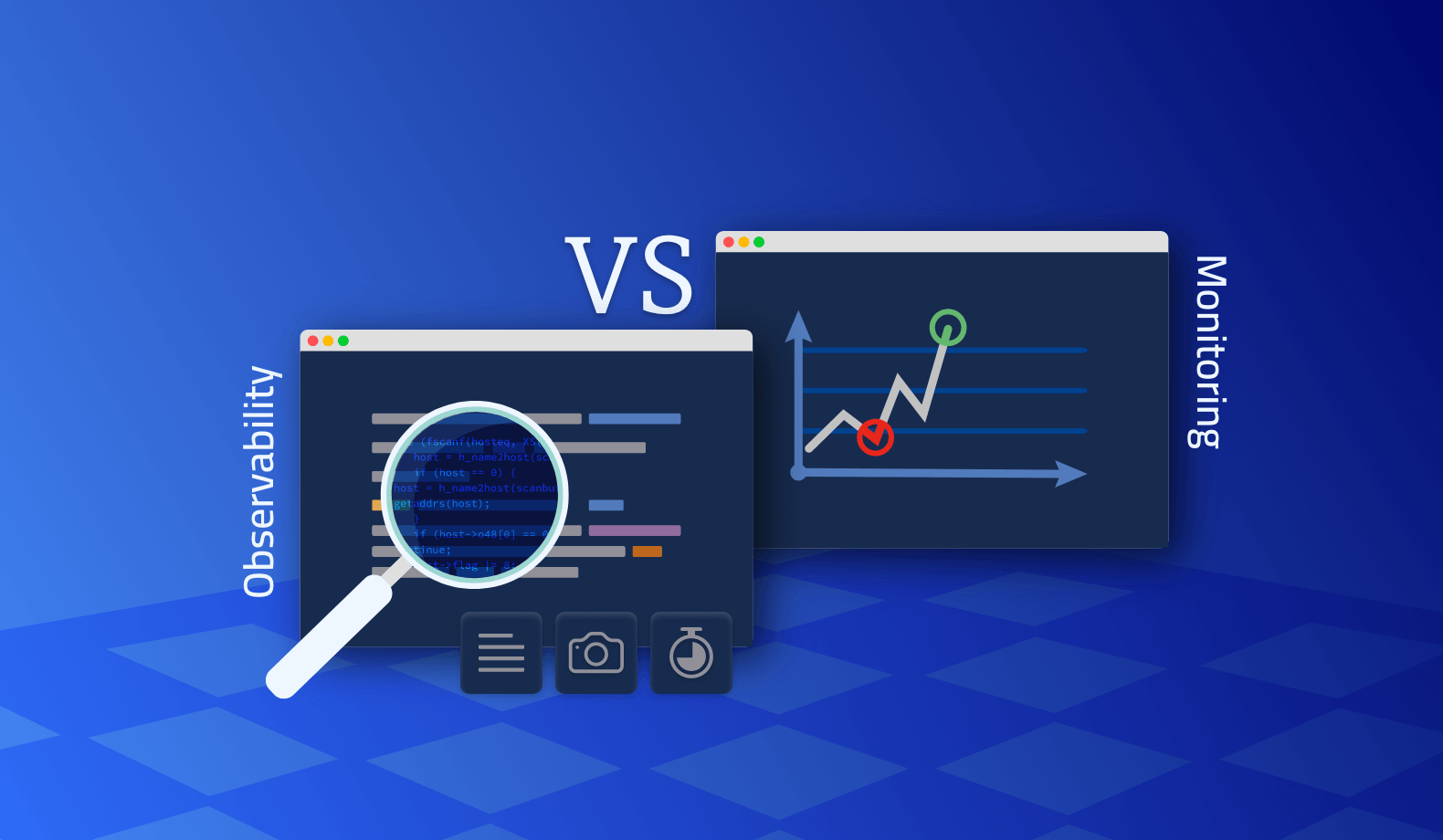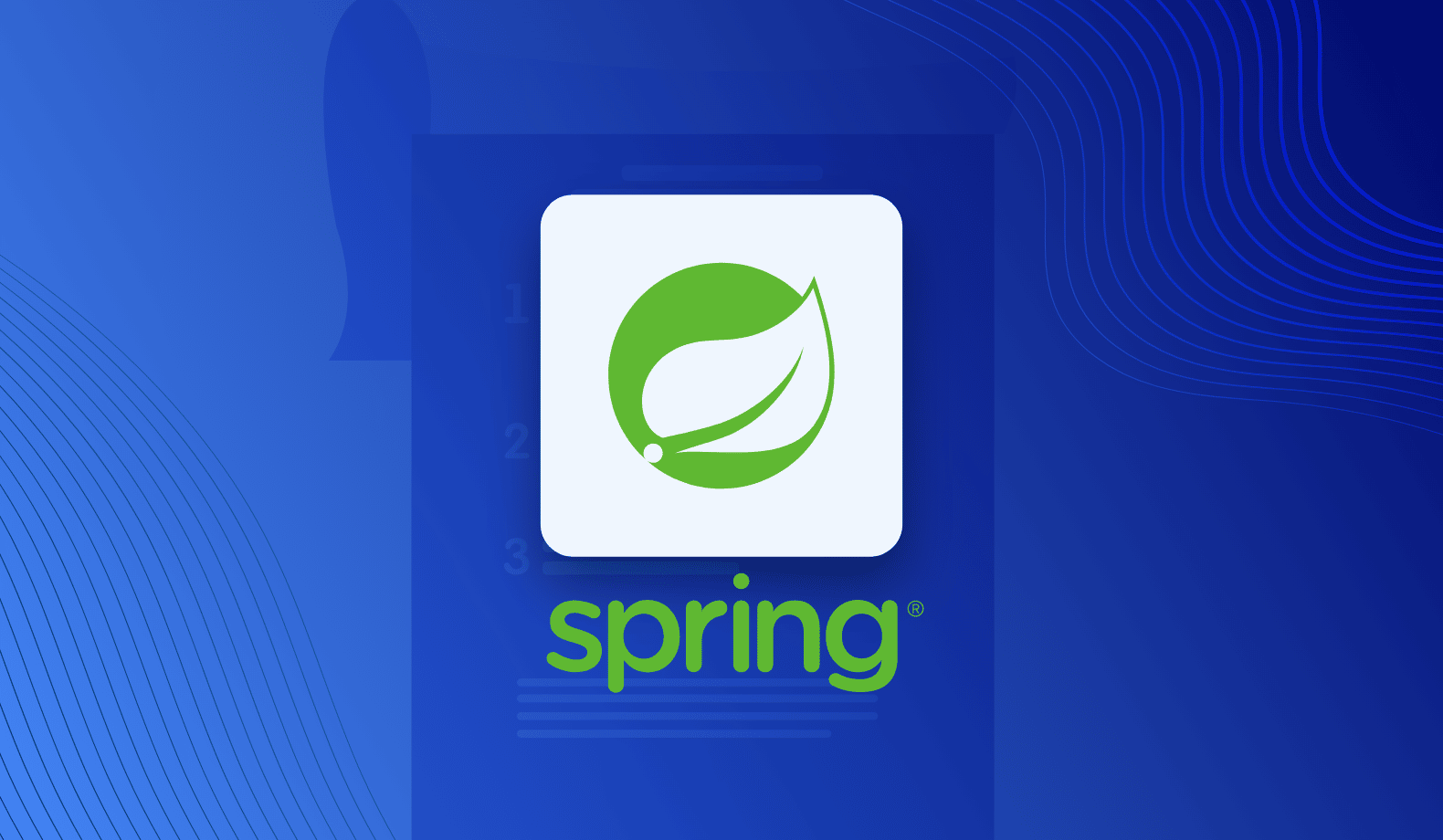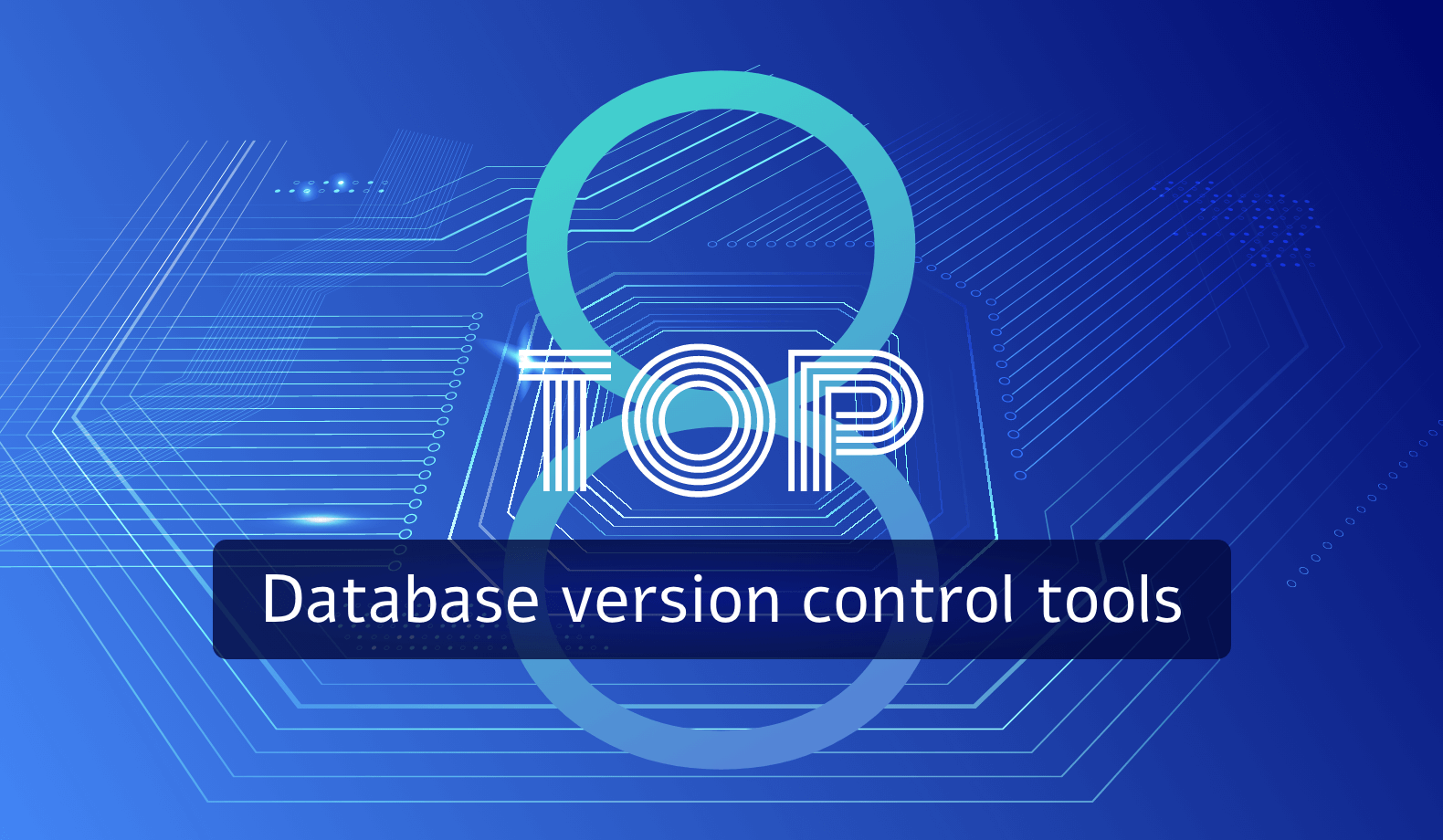

Top 8 Database Version Control Tools
Many DevOps teams struggle to achieve consistent builds and releases due to ineffective collaboration and communication strategies. Over 71% of software teams today are working remotely from global locations, according to a survey by Perforce and DevOps.com. Interestingly, this consistency challenge can be easily solved by a simple approach – database version control.
Version control streamlines database management, giving your entire team a common place to manage the codebase, communicate effectively, and collaborate easily, even from remote locations.
Managing databases using version control has been an oversight for most DevOps teams. Some of the challenges that database version control solves are:
- Low productivity due to delays in code reviews
- Distributed workforce leading to slow commits & merges
- Complicated asset management as the software complexity grows
- Databases scalability issues due to the tedious process
In this article, we will learn what database version control is, its benefits, and the top tools to version control your database.
What is Database Version Control?
Database version control is the practice of tracking every change made to the database by every team member. Like application version control, database version control acts as a single source of truth. It empowers you with complete visibility, traceability, and continuous monitoring of the changes in your database.
Database versioning constitutes information such as database schema, indexes, views, stored procedures, functions, and database configurations. With different teams like developers and system admins working on the same database, it becomes crucial to version control your databases.
The existing market scenario demands faster application releases, made possible by simplifying application and database changes regardless of complexity. Unfortunately, the significance of database changes is often overlooked. According to the State of Database Deployments in Application Delivery, more than 57% of application alterations require corresponding database changes.
Accelerating database changes through version control has a slew of benefits. Some of them are listed below:
- Greater visibility – You will get improved observability into your database. Tracking changes made, team members who made the changes, historical changes, and everyone’s fingerprint. Database version control also helps you locate a bug’s source and resolve it rapidly.
- Better collaboration – Irrespective of where your team works, they’ll always be on the same page concerning database changes. As version control forms the single source of truth, all the changes ever made are pushed to the source repository. The changes can be approved and merged in real-time after the verification by other team members.
- Database rollbacks – Version control is an excellent backup strategy. If anything fails or doesn’t go as desired, you can quickly revert to the earlier version. These rollbacks can be utilized for root cause analysis of the issue, saving you significant time.
- Compliance management – You can easily implement compliance and governance guidelines with a repository acting as a single source. Also, every change is tracked and logged, which makes auditing simpler.
Although version control has been a powerful concept to keep up with the software development complexity, teams often skip putting databases in version control because of challenges such as using multiple databases for development, demand for niche skills, and lack of tools for integration. With the number of tools available in the market, the task is to find the right database version control tool that fits your needs.
What to look for in Database Version Control tools?
The core idea behind version control is to ensure seamless collaboration between teams to accelerate software development. CI/CD (Continuous Integration and Continuous Delivery) is a DevOps practice integrating different code versions across stages and application deployment. When picking a database version control solution, you need to focus on the below aspects:
- Communication capabilities – A communication channel for teams to come together to discuss or update each other is crucial in avoiding confusion and mistakes.
- Security – As your team will be connecting to the tool from possible unsecured locations and networks, the solution should have robust security features.
- Real-time editing – DevOps hinges on a continuous improvement concept, which means the team should be able to make the changes in real-time.
- Traceability – Every code change should be reviewed and accounted for to avoid unwanted issues.
- Integrations – Today’s software development scenario features a variety of development tools, and your database versioning tool must allow easy integration with different environments like microservices and Kubernetes.
Top 8 Database Version Control tools
1. Git
Git is a free, open-source, widely used version control system. This distributed source control system allows you to host your data on locally saved folders called repositories.
Your team can access all files from the local repository, which can also be stored online. With Git, a copy of a particular functionality is called a branch, and each branch comes with its history. It becomes a part of the main project only when you merge them through pull requests.
Pros:
- Allows experimentation as you can keep your work private
- Enables flexible workflow or process that fits you best
- Safeguard data by effectively detecting data corruption
Cons:
- The learning curve is pretty steep and can be overwhelming
- Requires you to make a lot of decisions to implement changes
What are users saying?
“I like the options it provides developers to maintain repositories and help them collaborate in the best possible way.”
2. Mercurial
Mercurial (Hg) is a free, open-source, distributed source control management tool with an intuitive interface. Built with Python, Hg is a platform-independent tool. However, it lacks change control as you can’t edit earlier commits.
Pros
- An easy-to-use tool that is fast and requires no maintenance.
- Good documentation makes it easy for non-technical contributors
- It has better security features
Cons
- Not as flexible as other database version control tools
- It allows only two parent profiles
What are users saying?
“Ease-of-use when performing operations like branching, merging, rebasing, and reverting file changes.”
3. CVS
CVS (Concurrent Version System) is a solution that allows you to manage various versions of your source code. Your team can easily collaborate on the platform by sharing version files through a common repository. Unlike other tools, CVS doesn’t create multiple copies of your source code files. Instead, it keeps a single code copy but records all the changes made.
Pros:
- High reliability since it doesn’t allow commits with errors
- It only saves the revisions made to the code, making code reviews easy
Cons:
- Working on CVS is a time-consuming affair
- You can only store files in repositories
What are users saying?
“It’s simpler and less complex and has a good UI to make it easier.”
4. Lightrun
Lightrun is an open-source web interface and observability platform that follows Git-like methodology. Every action and change your team makes is logged and can be audited readily. You can also add logs, metrics, and traces to your app in real-time and on-demand to resolve bugs faster in any environment. It offers significant security features like an encrypted communication channel, blocklisting, and a hardened authentication process.
Pros:
- It comes with solid observability capabilities
- Works transparently along with applications enabling zero downtime
- You can significantly reduce time spent on debugging
- Easy, command-based workflows
What are users saying?
“Great tool for faster incident resolution and real-time debugging without needing to add new code.”
5. Dolt
Dolt is a SQL database that follows the Git-like versioning paradigm, unlike other version control tools. However, Dolt versions tables instead of files, ensuring your updates and changes are never lost.
Pros
- Partially open-source, lightweight, and easy to use
- Convenient to analyze data because of the SQL interface
Cons
- You will be bound to Dolt to realize its benefits
- It is yet to be adopted widely
- Dolt only versions tables, not any other data format
What are users saying?
“Easy to use and integrate with reports and dashboards.”
6. HelixCore
HelixCore is the version control solution from Perforce. It simplifies complex product development by tracking and managing changes to source code and other files. It uses the Streams feature to branch and merge your configuration changes. HelixCore makes it easy to investigate change history and is highly scalable.
Pros:
- It comes with a native command-line tool
- Capability to integrate with third-party tools
- Better security with multiple authentications & access features
Cons:
- It involves a complex workflow and user management
- Higher resource provisions are needed, so it can get expensive
What are users saying?
“It’s extremely simple to find what you are looking for and use it to complete tasks and the ability to track assets easily.”
7. LakeFS
LakeFS is an open-source data versioning tool that enables you to scale your data to Petabytes using S3 or GCS for storage. It follows a Git-like branching and committing practice in line with ACID (Atomicity, Consistency, Isolation, and Durability) compliance. This way, you can make changes in private and isolation that can be created, merged, and rolled back immediately.
Pros:
- Seamless scalability enabling large data lakes
- Allows version control for both development & production stages
- Offers advanced features like ACID transactions with cloud storage
Cons:
- Being a new product, it will have frequent feature changes
- You will need to integrate it with other tools
What are users saying?
“It is possible to develop schema changes in YAML and JSON, which is the order of the game nowadays.”
8. Liquibase
Liquibase is a migration-based version control database tool that uses changelog functionality to track the changes you make to your database. It defines its changesets in XML format that allows you to utilize the database schema on other database platforms. It comes in two variants – open-source and premium.
Pros:
- Allows targeted rollbacks to undo changes
- Supports a variety of database types
- Enables you to specify changes in multiple formats, including SQL, XML, and YAML
Cons:
- Advanced features are only available in the paid version
- It needs significant time and effort to use the tool better
What are users saying?
“Easy to integrate, and we can version control the changes by maintaining all the changeset.”
Summary
Database version control is a powerful concept that can give your application development methodology an extra edge. There are multiple tools available today – both free and paid. We have listed the top 8 database versioning tools used widely today. However, you must thoroughly understand your requirements and development pipeline before choosing the tool.
Lightrun can be an ideal pick to complement your development landscape as it has strong security and observability features. Start using Lightrun today, or request a demo to learn more.
It’s Really not that Complicated.
You can actually understand what’s going on inside your live applications.


